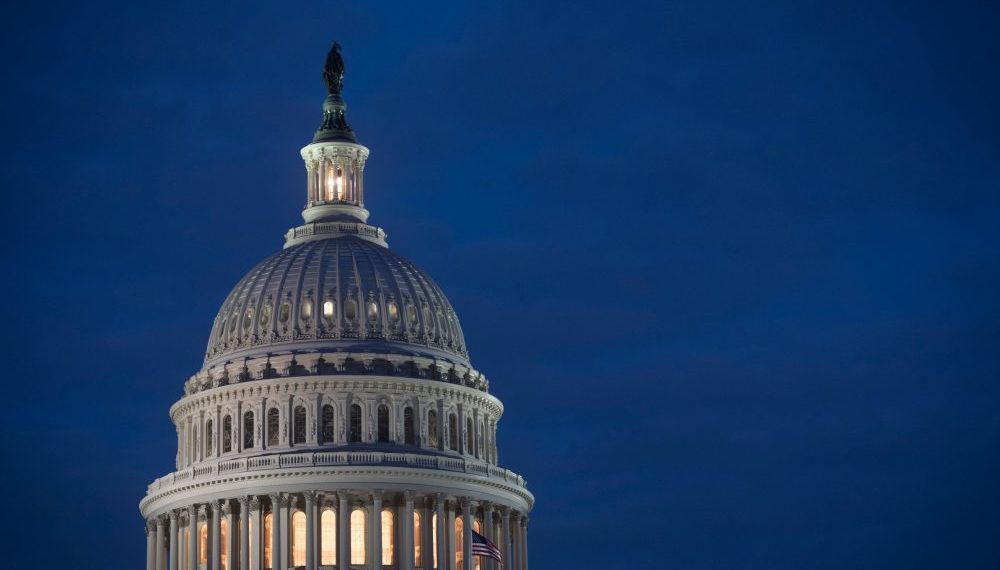With every new election cycle, the U.S. national debt manages to make its way into the national conversation.
With terms like “debt servicing capacity” and numbers like $23,064,757,634,362 (the national debt as of writing this article), the discourse around the debt revolves largely on jargon and statistics, making the issue difficult for most ordinary people to engage with.
The national debt of the United States is simply a measurement of how much money the government owes its creditors. Since the government spends more than it takes in in revenue, the national debt rises.
While there’s no agreement on whether on how to deal with mounting debt, or if it’s even necessarily a bad thing, everyone seems to agree: we need to be paying more attention.
According to Professor Christopher Weller of the University of Massachusetts Boston, it’s important not to look at the debt in isolation, but to consider it in relation to other economic factors, mainly the size of the economy.
“Right now debt is rising relative to the size of the economy because Congress enacted a massive tax cut in 2017 that rapidly increased deficits. Yet, economic growth only saw a small bump for less than one year from these tax cuts,” Weller, who’s also a senior fellow at the Center for American Progress, told The Globe Post.
Weller points to low interest rates as an opportunity for the government to foster economic growth by investing in infrastructure, climate resilience, education, and affordable health care.
“The federal government could theoretically run larger deficits for a while because interest rates are low and because these investments are proven to result in faster growth.”
To shrink the deficit, Weller said Congress should also reverse Trump’s 2017 tax cuts.
“Cutting those taxes didn’t help the economy and reversing them shouldn’t hurt the economy,” he said.
Critics of former President Barack Obama point to a staggering 100 percent increase in the debt from $10 trillion to $20 trillion as one of his biggest policy blunders. A large chunk of this debt though is from the economic stimulus programs introduced early in his administration to deal with the aftermath of the 2008 financial crisis.
In 2016, Trump ran on a campaign aimed at eliminating the national debt within eight years. In reality, the Trump budget has actually added $1.9 trillion. According to Trump’s 2020 budget estimates, the U.S. debt is set to increase to at least $29 trillion.
The Trump campaign adopted a two-pronged approach to eliminating national debt: grow the economy 6 percent annually to increase tax revenues and eliminate “waste and redundancy in federal spending.”
Once in office, however, Trump reduced his growth estimate to a more conservative 3.5 to 4 percent, and his two years in office, he has overseen the fastest dollar increase in debt in the history of the United States.
“The problem is that these tax cuts gave money to people and companies that already had a lot of cash and that weren’t investing that money to begin with,” Weller said.
“So cutting taxes for them predictably did not lead to more investments and thus couldn’t accelerate economic growth. The sharp increases in deficits followed by unchanged growth is a clear sign of economic mismanagement.”
While Trump has lowered revenue through his tax cuts, his administration has also successfully passed large increases in military spending each year.
In the recently unveiled budget for fiscal year 2020, the White House is calling for a massive Pentagon budget of $750 billion. To put this increase in perspective, The United States currently spends more than twice as much on its military as China and Russia combined.
While his tenure has faced it’s fair share of criticism, some are more optimistic about the Trump administration’s handling of the economy.
“I am very optimistic about how the Trump administration has handled the economy – and you see it in the high consumer confidence, among other metrics,” professor Christos Makridis at the Massachusetts Institute of Technology’s Sloan School of Management told The Globe Post.
He credits the current president for having looked for ways to reduce the deficit by reducing the size of government through its regulatory burden. Regulatory restrictions have grown less in this Administration more than any other prior Administration.
The issue of the national debt has been noticeably absent in the recent Democratic debates. Of the 229 questions asked by the moderators during the first two Democratic presidential debates, not a single one pertained to the national debt.
Makridis cautioned against the spending heavy proposals put forth by many of the Democratic candidates.
In particular, he criticized Elizabeth Warren for subscribing to Modern Monetary Theory, whose proponents argue that budget deficits are not inherently bad and can even help foster economic growth under the right circumstances.
But Weller sees this as being indicative of the interests of voters than it is the position of the candidates themselves.
According to Weller, the majority of voters still place key issues like access to health care, wage and employment growth, and infrastructure above the national debt in terms of importance.
“The deficit and debt are abstract concepts that are somewhat meaningless in isolation,” he said.
“What matters is what the money is used for. Democratic candidates are laying out an alternative vision for using the federal budget to address obvious concerns.”
More on the Subject
Everything You Thought You Knew About Economics May Be Wrong

















